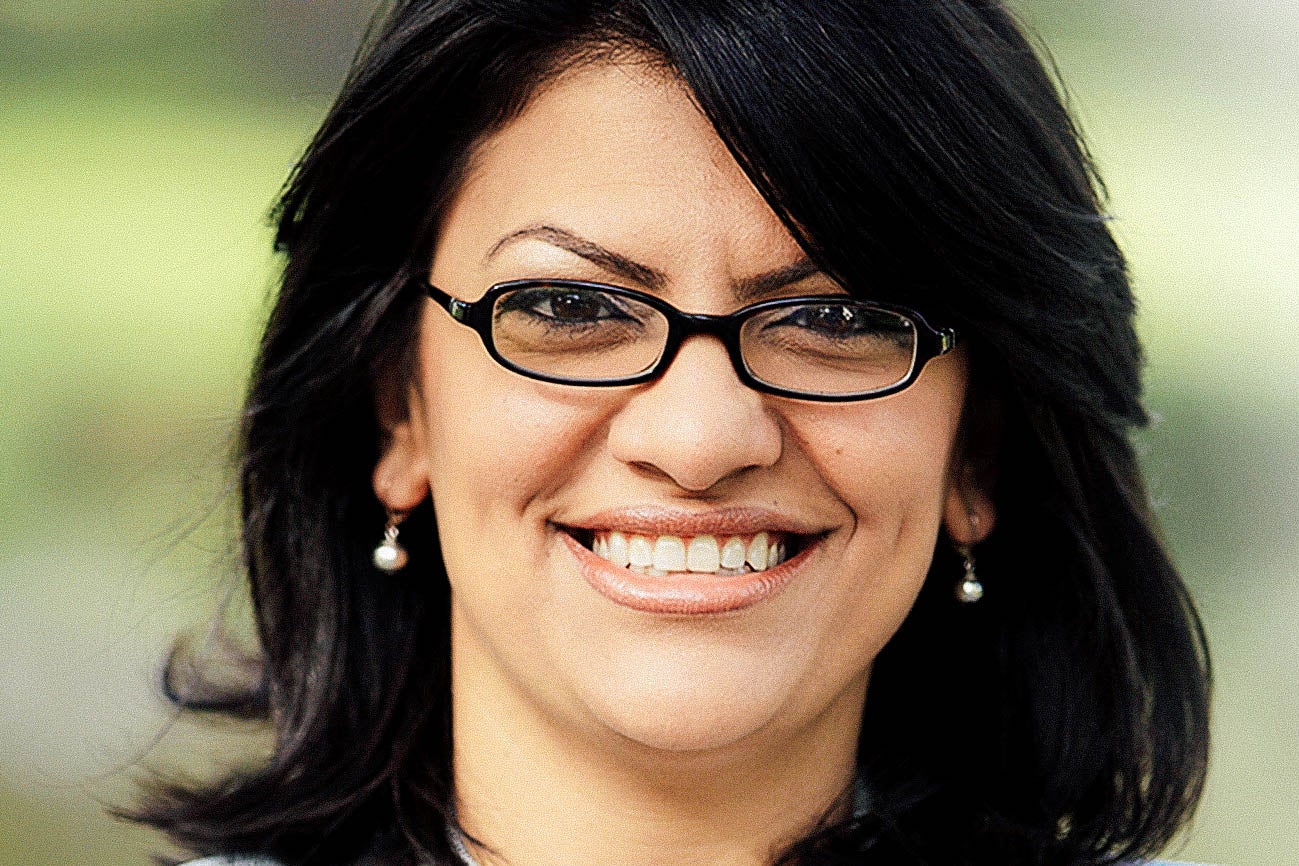Muslims haven’t had a lot of reasons to be excited about our government lately. Under President Trump, open hostility has become business as usual. From the proposed Muslim ban to the president casually telling Anderson Cooper that he believes Islam hates the United States, a heightened sense of anxiety now infects the lives of Muslim Americans, and we have real reasons to feel abandoned by our government. Hate crimes against Muslims have surpassed even the spike after 9/11, and within the United States, American terrorists have targeted fellow Americans who happen to be Muslim. Meanwhile, Trump invites hatemongers into the White House, hires them to his staff, and retweets anti-Muslim propagandists.
But if Muslims see a failure of democracy under Trump, Tuesday’s election results offer at least a glimmer of hope that the process can still work. In Michigan, Rashida Tlaib is now poised to make history by becoming not only America’s first female Muslim member of Congress, but also the first Arab-American Muslim, after winning the Democratic primary in Michigan’s 13th Congressional District, which covers most of Detroit and some of its suburbs. Tlaib will run unopposed in the upcoming election, and Muslims in the U.S. and abroad are already celebrating her victory.
In an email, Tlaib told me she thinks “this win shows a lot of Muslim Americans that even with Trump in the White House and the Supreme Court telling us the Muslim Ban is legal, our voices are powerful, and reminds people that we belong in this country like everyone else.”
As it turns out, Muslim Americans are happy to try and represent themselves if the current government refuses to. A former Michigan state legislator, Tlaib is one of the first to win in a wave of more than 90 Muslim candidates, mostly running as Democrats, who’ve entered the local, state, and national race for public office.
Her victory doesn’t advance some kind of Muslim agenda. She ran on a platform focused on economic and environmental justice, Medicare for All, and a $15 minimum wage—all issues that understandably resonate with people living in Detroit. Her identity, she told me, didn’t play a central role. “I’m proud of my faith and am raising my family to be proud of our identity,” she told me in an email. “A lot of people expect that my race and religion was an issue in this campaign, but it really wasn’t. Voters on the doors don’t care that I’m Muslim, they just want to know that I’ll work hard for them and never sell them out.” She received over 27,000 votes, edging her over her opponent by only 1 percent. “How I pray doesn’t matter to them,” she added.
But to Muslims everywhere, her victory will help revive a marginalized community’s hope in fighting for an egalitarian democracy. Tlaib’s win stunned American Muslims everywhere who’d given up on seeing themselves in the people responsible for governing them. Representation, especially for American Muslims, matters. The Pew Research Center concluded that familiarity with a Muslim was directly linked with positive views toward Islam, and in America, more than half of the population have never met one. So with more Muslims in government, we’ve got a better shot at curbing the problem of Islamophobia, and we’ll have at least a few elected leaders who can relate to the struggle.
For the first time in a long time, I’m excited about democracy. Without it, the prospect of fighting for representation—and winning—would be impossible. In her acceptance speech, Tlaib reaffirmed her commitment to our shared American values. “I’m going to push back against everything that’s so un-American that’s coming out of this administration,” she promised a cheering crowd. And that’s something all Americans should celebrate.
